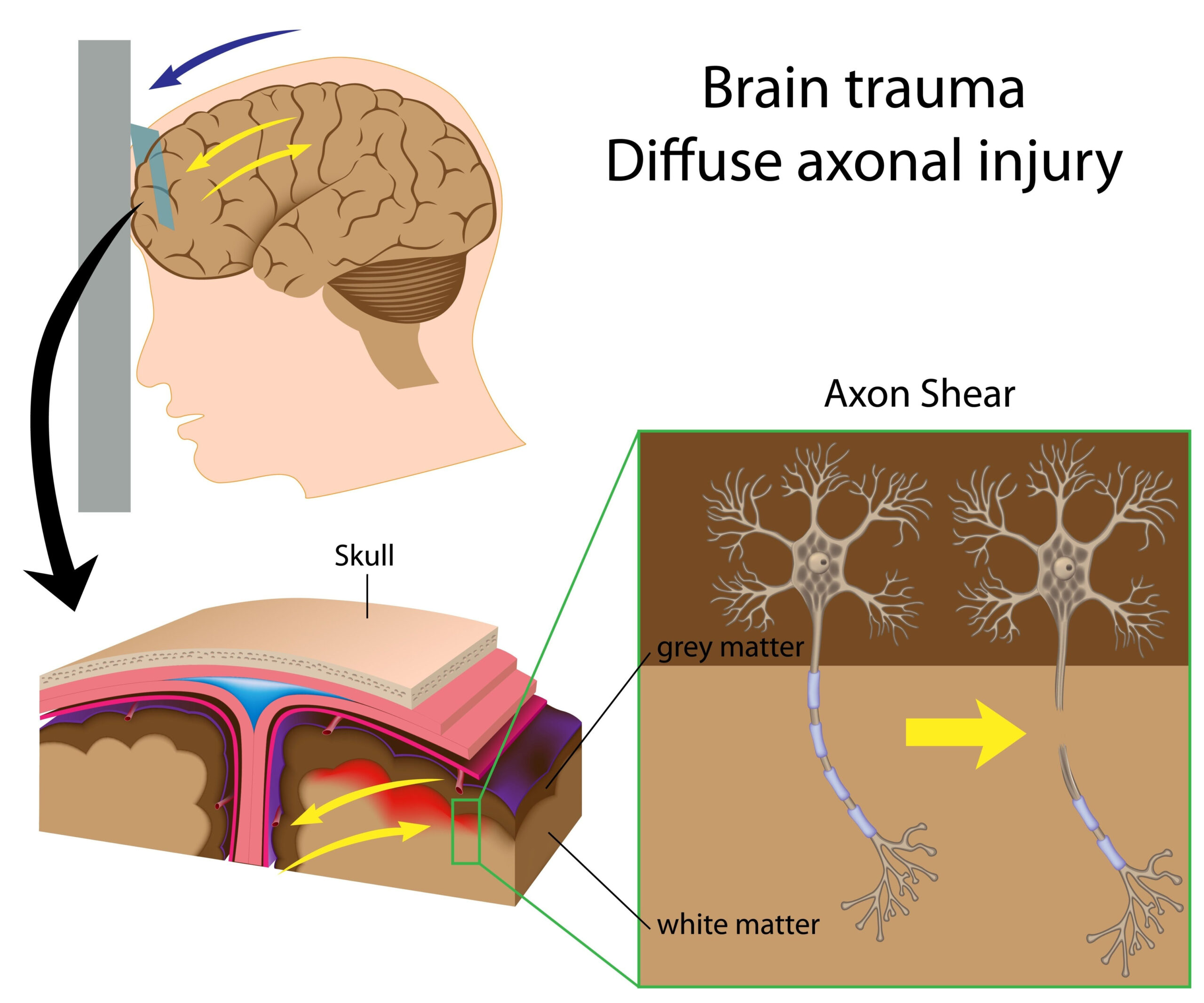Association Between Parental Stress and Child Recovery
Research has increasingly highlighted the significant role that parental stress plays in the recovery process of children following a concussion, particularly in the acute phase after the injury. When a child sustains a concussion, it often leads to a cascade of emotional and psychological responses not only in the child but also in their parents. Parents, faced with supporting their child during a difficult time, often experience heightened levels of stress and anxiety, which can influence their child’s recovery trajectory.
The concept of parental stress encompasses various factors, including emotional strain, psychological distress, and the burden of caregiving. These stressors can lead to maladaptive responses, such as increased vigilance or withdrawal, which may inadvertently affect the child’s environment. For instance, a parent who is overly anxious might overly restrict a child’s activities, fearing further injury. This kind of behavior can inadvertently inhibit the child’s opportunities for healthy engagement and play, which are crucial for cognitive and emotional recovery post-concussion.
Evidence suggests that parental stress correlates with worse recovery outcomes in children. High levels of parental anxiety can contribute to an environment where the child feels more anxious, potentially exacerbating symptoms such as headaches, mood swings, or concentration difficulties. Studies indicate that children whose parents report higher stress levels tend to experience prolonged symptoms and delayed recovery, further emphasizing the interconnectedness of parental mental health and child health outcomes.
Moreover, parental communication styles and their ability to cope with the situation can also influence a child’s recovery. Supportive parenting, characterized by understanding, reassurance, and effective communication, fosters resilience in children. In contrast, a distressed parent who struggles to maintain a positive outlook may inadvertently convey negativity, which can amplify the child’s distress. Thus, it becomes vital to address parental well-being in conjunction with child treatment to create a supportive recovery environment.
Understanding the relationship between parental stress and child recovery from concussion can inform clinical practices and family interventions. By targeting parental stress through counseling, education, and support groups, healthcare providers may facilitate improved recovery outcomes for children. As such, acknowledging the role of the family environment in pediatric concussion management is crucial in developing comprehensive treatment strategies that not only focus on the child but also consider the mental health of the parents.
Study Design and Participant Recruitment
The study employed a cross-sectional design, focusing on children aged 3 to 8 years who had suffered a concussion and their primary caregivers. This age group was selected because it represents a developmental stage where neural plasticity is significant and where children may struggle more noticeably with symptoms following a concussion. The recruitment process targeted families visiting pediatric emergency departments or clinics specializing in pediatric brain injuries within a specified timeframe following a concussion diagnosis.
To ensure a representative sample, researchers utilized both purposive and convenience sampling methods. Families were approached directly in the emergency clinic settings and provided with information about the study. They were informed of the study’s aims, the nature of participation, and the potential benefits of contributing to research that addresses both child health and parental influences on recovery. Consent was obtained from parents or caregivers prior to their child’s involvement in the study.
Eligibility criteria were clearly defined to ensure that participants were suitable for the study’s objectives. Inclusion criteria required that the child had experienced a confirmed concussion within the past two weeks, a period renowned for the acute phase of recovery during which parental stress levels are usually heightened. Additionally, it was essential for the primary caregiver to be the person most involved in the child’s care during this period, ensuring that the reported stress levels pertained directly to the caregiving context.
Family demographics were collected, including age, gender, socioeconomic status, and educational background, to account for potential confounding variables that could impact both parental stress and child recovery outcomes. Surveys and questionnaires assessing parental stress were administered, focusing on perceived stress levels, coping mechanisms, and emotional wellbeing. Simultaneously, children’s symptoms were evaluated using standardized tools to measure cognitive, emotional, and physical recovery stages, which allowed researchers to establish a correlation between parental stress and child’s recovery trajectory.
The data collection process emphasized a compassionate approach, recognizing that families were navigating a challenging period. Caregivers were given the opportunity to discuss their experiences and express concerns in a supportive environment. By facilitating open dialogue, the study aimed not only to gather important data but also to provide caregivers a voice in how their experiences could inform better support structures for future families facing similar challenges.
Following data collection, the analysis focused on identifying patterns and associations between the levels of parental stress and the recovery outcomes of the children. By emphasizing statistical models that account for the complexity of these relationships, including multivariate analyses, researchers could uncover nuanced insights into how parental stress influences child recovery post-concussion.
This meticulous design and recruitment strategy were essential for ensuring valid findings that could contribute to a deeper understanding of the complex interplay between parental stress and child recovery, highlighting the importance of family dynamics in clinical outcomes following pediatric concussions.
Results and Data Analysis
The results of the study revealed significant associations between parental stress and child recovery outcomes following a concussion. Data analysis displayed a clear trend where elevated levels of parental stress were linked to a protracted recovery period for children, confirming hypotheses put forth in previous literature. Parents reported varying degrees of emotional distress, with many indicating feelings of anxiety and helplessness in the face of their child’s injury. This emotional state corresponded with statistically significant negative impacts on child recovery, specifically in areas such as cognitive function, mood regulation, and physical symptoms.
Standardized assessments utilized in the study, including established pediatric concussion recovery scales, showed that children whose parents exhibited high stress levels had notably higher scores for ongoing symptoms like headaches, dizziness, and difficulty concentrating. Through rigorous statistical analysis, including regression models, it was demonstrated that for every additional point increase in the parental stress scale, there was a corresponding increase in the severity of symptoms reported by children. This relationship underscores the role of a parent’s psychological wellbeing as a critical factor in pediatric post-concussion recovery.
The study also examined variations in recovery timeframes. While the average recovery duration for children whose parents experienced low stress levels was around two weeks, those with high parental stress took significantly longer—averaging nearly four weeks to achieve comparable recovery milestones. This finding is particularly alarming, as prolonged recovery can affect not only the child’s health but also their educational and social experiences during early childhood.
Moreover, the analysis included qualitative feedback from caregivers, which provided additional context to the statistical findings. Many parents expressed feeling overwhelmed by the demands of caregiving while simultaneously coping with their own stress. They noted that the dual pressures of managing their child’s symptoms and their emotional responses created a cycle of anxiety that could further hinder the child’s recovery efforts. This qualitative data enriched the quantitative findings, revealing personal stories that illustrated the profound impact of parental mental health on children’s recovery processes.
Additionally, multivariate analyses were employed to control for various confounding factors, such as the child’s prior health history, the severity of the concussion, and socioeconomic status. These analyses confirmed the robustness of the findings by demonstrating that the correlation between parental stress and child recovery remained statistically significant even after accounting for these potential influences. This methodological rigor strengthens the case for the need to address parental health in clinical settings, representing an important step toward holistic treatment approaches in pediatric care.
The results and subsequent analyses of the data not only highlight the intricate relationship between parental stress and child recovery from concussion but also signal an urgent need for integrating mental health support for parents within pediatric healthcare pathways. By recognizing the significant influence of parental stress, healthcare providers may implement targeted interventions that could alleviate stress and promote a more favorable recovery environment for children following concussive injuries. These findings call for continued exploration into the family dynamics at play and their implications for recovery outcomes, reinforcing the importance of a comprehensive understanding of the caregiving context in pediatric healthcare.
Recommendations for Future Research
Future research into the relationship between parental stress and child recovery from concussion should adopt longitudinal study designs that enable tracking changes over time. Longitudinal studies would allow researchers to investigate how parental stress evolves from the acute phase of a child’s injury through to full recovery and beyond, providing insights into the long-term dynamics of this relationship. By periodically assessing both parental stress and child recovery milestones, researchers can capture the fluctuations in parental emotional states and their direct impacts on the child’s ongoing recovery process, thereby clarifying causative pathways.
Additionally, future studies should incorporate a more diverse sample population, including families from various cultural, socioeconomic, and geographic backgrounds. By capturing a broader range of experiences and stressors, researchers can better understand how differing family contexts influence the stress-recovery relationship. This diversity is essential for developing culturally relevant interventions that address specific needs and experiences of different groups, thereby enhancing the practical applicability of findings.
Another avenue for exploration includes the development and implementation of intervention studies aimed at reducing parental stress in the context of pediatric concussion recovery. Interventions could involve supportive counseling, stress-reduction workshops, or family-focused therapies, evaluated through randomized controlled trials. By measuring the effectiveness of these interventions on both parental stress and child recovery outcomes, researchers can assess the potential for integrated treatment approaches that consider both child and caregiver wellbeing. This will further bolster the argument that addressing parental mental health is pivotal in pediatric care.
Furthermore, with the advent of technology, digital health solutions such as mobile apps or web-based platforms could be explored as tools for supporting parental mental health. Future research can evaluate the feasibility and effectiveness of these interventions in real-time, offering parents coping strategies, educational resources, and a community of support. Integration of real-time data collection—through wearables or apps—could provide valuable insights into the daily stress levels of parents, correlating them with the child’s symptoms, thereby refining our understanding of triggers and recovery patterns.
Additionally, it would be beneficial to study the influence of specific parenting styles and communication approaches on child recovery. Investigating how different styles, such as authoritative, permissive, or uninvolved parenting behaviors, impact both parental stress and child recovery could lead to more tailored therapeutic strategies. Recognizing that a supportive parenting environment can promote resilience in children, this research could contribute to the development of training modules for parents designed to enhance supportive behaviors during their child’s recovery.
Finally, interdisciplinary collaboration among pediatricians, mental health professionals, and researchers is crucial for fostering a holistic understanding of the issues at hand. By forming partnerships across medical disciplines, researchers can benefit from comprehensive insights into both physical and psychological aspects of concussion recovery. This collaboration could ultimately facilitate a more integrated approach to treatment that not only supports the child’s physical health but also addresses the emotional and psychological needs of the entire family.
Addressing the complex dynamics of parental stress and child recovery from concussion is a multifaceted challenge that requires innovative research strategies and interdisciplinary efforts. By prioritizing these future directions, we can develop more effective interventions and support systems that improve both parental wellbeing and child health outcomes in the wake of concussion injuries.


